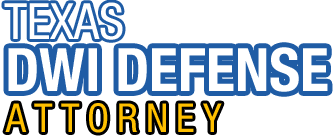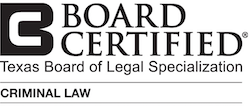What to Expect Now?
Mission and Objectives
Our reputation with the courts has been built through many years of hard work and practice - and we take great pride in our results. It should go without saying that reputation and integrity are everything in the practice of law. Future and potential clients is dependant on our vigorous and zealous advocacy in each and every case we handle. That is why believe the best predictor of future success is dependent on prior results. Please read our AVVO profile HERE, and our page on SUPERLAWYERS as well HERE. We will always promise to work as hard as we possibly can, and tirelessly try our best to resolve your legal matter in the best way possible.
Criminal Case
In terms of the criminal case, your first court appearance is known as your arraignment (generally speaking, but this varies by county). To read more about first settings in general, please read HERE.
This is the hearing wherein the judge advises what charges are filed against you and requests a plea to be entered on your behalf. Again, many counties waive this formality, or it done (more or less) when a judge sets a bail amount before someone is released from being incarcerated. Usually, regardless of the facts or circumstances, evidence needs to be reviewed and analyzed, but if one must, our office would usually advice the citizen accused to enter a "not guilty" plea. In Texas, however, this is not done usually until, and usually only if, one proceeds to trial.
As stated before, our office will then obtain the complaint, police report, any possible videos, and any other discovery, which we will copy and forward to you within a couple of days for your review (or as soon as we can). In Texas, the arraignment process usually is what occurs when a judge first sets a bail bond amount. At this point, the judge will decide whether any conditions should be imposed on you while the case is pending. Usually, in Texas, first time offenders with no enhancements, accidents and non-lethal blood alcohol levels would not have any conditions other than no drinking and driving. For those more serious cases such as multiple offenders, accident cases, injury cases, the judge could order you to attend alcoholics anonymous meetings, a higher bail, a treatment program, and a strong liklihood of ignition interlock (Deep-Lung Device, or "DLD) being installed on your car as a condition of bond. These are just a few of the possibilities that may or may not occur.
Your case will then proceed with a future court appearance, known as a pretrial conference (or in some counties an announcement setting). A pretrial conference is a conference prior to trial wherein a number of things usually are done, which beging with negotiations with the District Attorney assigned to your case. Usually, it includes evidence being requested and provided, negotiation of strengths and weakness of the case being discussed, scheduling of future court appearances, etc. To read more about the overall criminal case process, please read more HERE.
In between the first and second court appearance, we possibly will make discovery requests on whatever law enforcement agency may be involved, crime labs and prosecution offices involved in your case, etc. This discovery request is the method attorneys utilize to obtain the evidence pertaining to your case. It should be noted that this discovery process in Texas has changed significantly since the Michael Morton Act enacted in 2014.
However, regardless, the overall discovery process may take several appearances and a number of months before we secure all the significant items of evidence needed to properly proceed. After we obtain everything, it will help us better assess and be able to give an informed, and professional, opinion regarding the strengths and weaknesses of your case. We will be exploring differing resolutions of your case at these pretrial conferences. In terms of the number of pretrial conferences, there may be as few as a couple or as many as a dozen depending on a variety of factors. This certainly depends on the county, and also which court your case is assigned in.
Pre-trial Motions
Before trial we may want to file pretrial motions that may or may not require your attendance to challenge the admissibility of the prosecutors evidence, and a ruling in your favor can result in evidence being excluded from your trial, including evidence or adverse statements you may have made. At this point, it may be pertinent to file certain motions, such as a "Motion to Suppress" the evidence. In a DWI case, this may include the reason for the traffic stop (or encounter), and/or the probable cause citing why the citizen accused was first arrested. Successful pre-trial motions often compel the prosecutor to make an advantageous plea bargain offer, or can result in the dismissal of the charge based on an unconstitutional stop.
Jury Trial
Finally, we may even schedule a jury trial date if the situation permits. In Texas, intoxication-offenses, mainly those pertaining to Driving While Intoxicated offenses, it is not possible for one to be offered "Deferred Adjudication." It may be the case that our office and the citizen accused will mutually decide that there is not reason NOT to set the case for trial. In fact, even if you lose, the punishment could even get significantly better. Often, this additional court date may give us one final chance to resolve the case in a more favorable manner. Typically, DWI jury trials, can last anywhere from two to four days. The jury trial process can be a lengthy one, and it does take some endurance and fortitude to withstand going through the process. Often, in larger counties, such as Dallas County, it can take a very long time to proceed to trial given the amount of cases that are on their docket in each court.
The first thing that has to be dealt with would be any pre-trial motions that need to be ruled on, including motions in limine, which basically determine whether the judge may decide whether to exclude/preclude or limit evidence. The next phase of the jury trial process is proceeding to voir dire (or jury selection).
In Texas, we have twelve person juries for felony cases, and usually one or two alternate jurors as backups if a juror happens to not be able to last the duration of the trial. As well, in Texas we have only 6 people juries for any misdemeanor case. Either way, all jurors must agree in order to convict. The jury verdict must be unanimous. That being said, it just takes only one juror to "hang" the jury requiring a mistrial.
During the voir dire process, questions are posed (by both the State and the Defense) to prospective jurors regarding their possible bias, prejudices and fitness to stand as a juror in the criminal case they may be asked to sit for. After the jury is seated, then both the prosecutor and defense attorney has the option of delivering an opening statement. It should be noted that jury selection, or voir dire, is more of a de-selection process, than a process of actual selection.
After the opening statement, the prosecution, since it has the burden of proof beyond a reasonable doubt, will begin their case-in-chief, calling any witnesses that may have testify against you. In a DWI trial, this will undoubtedly include the arresting officers, and other possible witnesses, such as those who may call 911 if they believe a driver may be intoxicated, as well as witnesses such as a Technical Supervisor in a DWI case, and a number of witnesses in a blood test DWI case (they must bring the first and last link in the chain of custody - but they can also bring those in between, most notably the nurse, or phlebotemist who conducted the blood draw).
Usually, the first witness is the police officer that made the arrest and possible another officer who assisted in some manner at the scene. After all of the State's witnesses testify, they will then rest their case-in-chief.
However, it should be noted that after each witness of the prosecution testifies on direct examination, and before their next witness is called, the defense counsel always has the opportunity to cross-examine the witnesses the state utilized against the citizen accused. Like a skilled surgeon cutting open a patient to expose the problems, the cross-examination of the arresting officers (and any other possible witness, including any expert witnesses) is vital in any criminal case, and especially in a DWI trial. Rigorous cross-examination is the only engine for truth in a criminal trial.
After the State rests, the Defense is then able to being their case-in-chief for the trial. This may incude possible intoxication witnesses who may attest for the sobriety of the citizen accused, other people with knowledge pertinent to the case, and also the citizen accused themselves. In reality, it totally depends on how strong the State's case in chief was, and often the Defense simply rests without putting any witnesses, evidence, or exhibits for the jury to consider. Sometimes doing so can be detrimental in fact.
In the situation where the Defense does call witness, it usually will be the people who were with the citizen accused when they were arrested (intoxication witnesses), possibly a private investigator with facts pertinent to the case, and also possibly expert witnesses (such as individuals who have specific expertise in Standardized Field Sobriety Testing, in the specific nuances and all of the variables that are associated with the Intoxilyzer 5000, and/or blood test experts who can testify as to whether the blood was conducted in the proper manner.
After the defense puts on their case-in chief, the prosecution has an opportunity to call rebuttal witnesses. After this, both sides will usually rest. At this point, a possible jury charge is submitted to both sides for consideration to be used in closing arguments, and when the jury deliberates. Often, the prosecution and defense will argue about jury instructions on the law to the judge (relating to what will ultimately be submitted to the jury). Once this process has been completed, both counsel will engage in closing argument.
Upon completion of closing arguments, the jury will then be sent to deliberate and will be asked to attempt to render a proper and true verdict regarding the facts and the law relevant to the case. Sometimes during deliberations, jurors will pose questions to the court, and counsel may argue about what the appropriate response should be. The deliberation process will yield one of two outcomes, a verdict (either "Guilty" or "Not Guilty"; or an inability to reach a decision resulting in a hung jury/mistrial. Depending if a mistrial is the ultimate result, the District Attorney's office will have the option of re-trying the case at a future date, offering a plea bargain to a reduced charge, or dismissing the case entirely. To read more about Jury Trials vs. Plea Bargains, please read more HERE. To read more about the overall process associated with a criminal case, especially pertaining to charges of Driving While Intoxicated, please read HERE.
Court Attire
When you are required to make court appearances, please dress appropriately. Our office requests the citizen accused on trial please wear a suit, pants with a shirt and jacket, or pants with a buttoned up, and a collared shirt to court. The same general genre applies to professional dress for women. It is advisable NOT to wear sunglasses, a baseball caps, shorts, excessive jewelry, and ALWAYS turn phones off (or put them on silent). A good rule of thumb is when going to court for your own trial, dress and act like you would when applying for a job or attending a funeral.
Client Notice
Please note that after each court appearance our office will usually contact you regarding when the next court appearance is scheduled (and whether you will be required to attend), copies of any documents relating to your case obtained from the appearance, as well as important information which may be needed on our end. In other words, you will be informed throughout this process of all that is going on with your case, and will be apprised of relevant information, especially and including all plea bargain offers when they are made by the District Attorney in charge of your case. If you still have any questions regarding your case that you believe must be addressed, please do not hesitate to contact our office. Our office is always here to help try and resolve your case in the best and most efficient way as possible.
The Law Offices of Carl David Ceder have many professionals who will work in conjunction to help answer any basic questions, such as confirming court dates, confirming payment due dates, and verifying certain information in your file. If you need to speak directly with Carl, and he is not in the office, he is likely in trial or at court at the time you call, please leave a detailed message with any member of our staff so that we can answer your questions promptly and as quick as possible.
For your information, Carl is usually in court every morning and the best time to reach him directly ALWAYS is in the afternoon. Remember that you are not to discuss your case with anyone except our attorneys, our office staff, and those people we have directed to speak with you (including investigators, possible experts, etc.). If you have any questions concerning the process, please contact us and we will try to provide and prompt and professional answer. Furthermore, if you have any documents relating to your arrest, please forward them to our office and we will do our best to answer.
Client Responsibilities
In a case with our office, other than reviewing the police report, reviewing transcripts/video, completing the questionnaire, providing documents and witnesses, there may not be a lot for the client to do, which may seem a bit frustrating. *However, please note and be assured that we are working vigorously and diligently on your case, and greatly value your patience, understanding, and consideration.
Contact Our Office Now
You can contact The Law Offices of Carl David Ceder at anytime for assistance at 214.702.CARL(2275) or at 469.2000.DWI(394). You can also e-mail Carl directly, at Carl@CederLaw.com; or to the office for general inquiries at Info@DFWDefenders.com. Phones should be answered 24 hours a day/7 days a week for immediate and prompt assistance. E-mail messages will try to be responded to with 24-48 hours, depending on whether Carl and his team is in trial and/or is busy working on a case for a contested hearing.




















